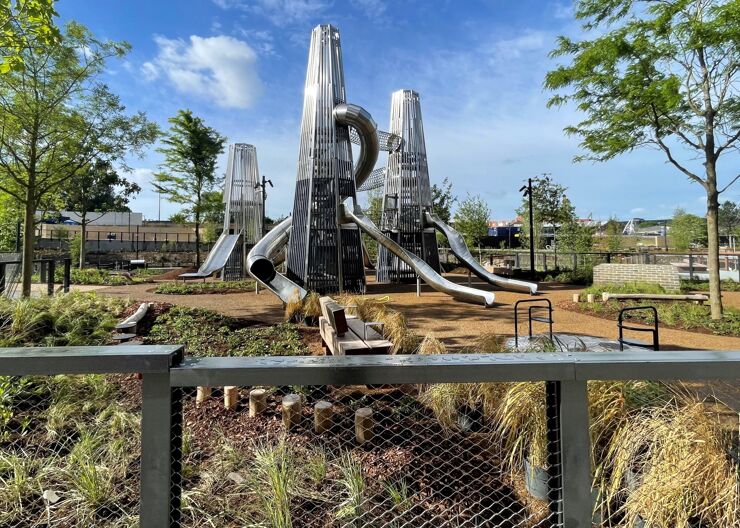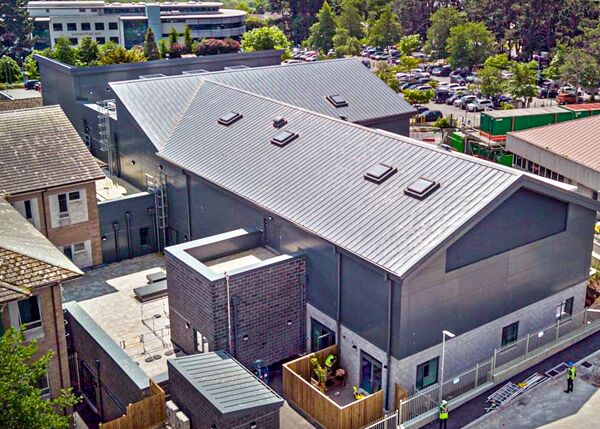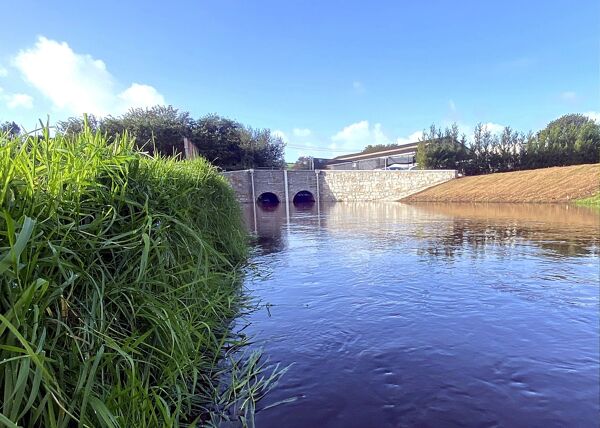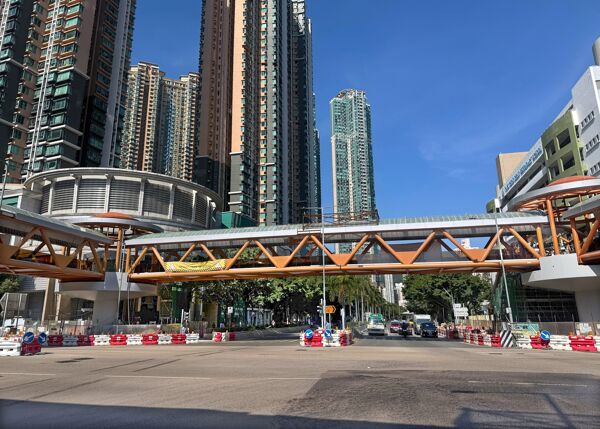
NEC contracts have been used to deliver the first new public park in Manchester, UK for over 100 years. The new 2.6 ha Mayfield Park forms the centre piece of a landmark £1.4 billion mixed-use urban neighbourhood planned in the heart of the city centre over the next ten years.
Located at the former Mayfield Depot site next to Manchester Piccadilly Station, the planned northern hub of the High Speed Two rail project, the development is transforming a previously derelict part of Manchester's industrial heritage into a vibrant new neighbourhood. In addition to Mayfield Park, it includes 1,500 homes, new commercial space and new retail and leisure facilities.
Client Mayfield Development Partnership, which consists of regeneration specialist U+I, Manchester City Council, Transport for Greater Manchester and developer LCR Property, let the park project to Contractor PP O'Connor Group in three phases using NEC4 contracts.
The first enabling works package was let under an NEC4 Engineering and Construction Contract Option E (cost-reimbursable contract). A second enabling works package and the main civil engineering works were then awarded under separate NEC4 ECC Option A forms (priced contract with activity schedule). Faithful+Gould provided NEC project management services on all three contracts, with Buro Happold acting as NEC supervisor.
A major part of the project involved uncovering the River Medlock, which for the past 50 years has been culverted. Designed to accommodate multiple users and for differing uses, the park includes a play area with slides and footbridges across the river, space for sports and events, an urban square, floodable meadows, wetlands and quiet green spaces for relaxation.
The work started in September 2020 and, despite the onset of the Covid-19 pandemic, was completed on time and budget in May 2022. The park will be opened to the public in autumn 2022 when planting and lawn areas have had time to be established.
Results for all parties
Matthew Wallis from Faithful+Gould explains that NEC contracts were chosen because they provided a process that delivered results for all parties. 'NEC contracts are based on promoting and formalising best practice which in turn reduces disputes and makes the delivery of construction projects more efficient. They strive for collaboration, open and honest communication and proactive risk management; principles that benefit not only individual projects but the construction industry as a whole.'
He says the NEC requirement for the client, contractor, project manager and supervisor to act in a 'spirit of mutual trust and co-operation' was promoted on the Mayfield Park project through proactive management of risk, which in turn created a collaborative environment. 'This was supported through the NEC early warning process and was highly effective, giving the project team an increased confidence of time, cost and quality outcomes.'
Wallis says the early warning process was most notably demonstrated when a significant change was instigated by the client to the playground area. ‘This involved close collaboration with specialist subcontractors, designers, architects, the Environment Agency, the contractor and town planning consultant to minimise the impact of the change on the programme and budget.’
He says that from an early stage, the project manager promoted the use of Sypro contract administration software. ‘This contributed to a proactive environment that helped to ensure best practice was at the forefront of the project.’ Overall, the NEC philosophy, “to provide clarity, flexibility and stimulate good management,” shaped an environment where the project, people and process worked in harmony to achieve success.’
Benefits of using NEC
- NEC requirement for the parties to act in a, ‘spirit of mutual trust and co-operation,’ was promoted through proactive management of risk, which in turn created a collaborative environment.
- NEC early warning process was highly effective, giving the project team an increased confidence of time, cost and quality outcomes.
- NEC philosophy, ‘to provide clarity, flexibility and stimulate good management,’ shaped an environment where the project, people and process worked in harmony to achieve success.



